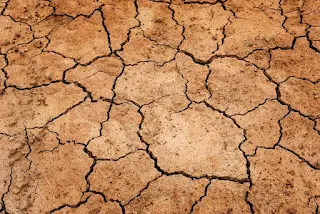Rainwater harvesting, the practice of collecting and storing rain for later use, is an ancient and sustainable method that holds tremendous potential for modern water conservation efforts. However, despite its environmental benefits, there's a surprising amount of controversy surrounding the legality of rainwater harvesting. In some regions, this practice is encouraged, while in others, it is illegal. So, what's the story behind this? There has to be an explanation for all of this right?
The Legality of Rainwater Harvesting
The legal perspective on rainwater harvesting varies worldwide, reflecting regional water scarcity, historical water rights, and contemporary environmental considerations. For example, many countries, like Australia, India, and Germany, actively promote rainwater harvesting.
Australia
Australia is the driest inhabited continent on earth, making water conservation a top priority. Many parts of the country have implemented strategies and policies to promote rainwater harvesting. For instance, South Australia offers rebates to residents who install rainwater harvesting systems. The local governments in several regions also require new homes to install a rainwater tank or another water-saving device as part of their building regulations.
India
 |
| Collect rain water for gardening! |
Germany
Germany is a leader in environmental sustainability, and rainwater harvesting is no exception. The country promotes the use of rainwater for non-drinking purposes, such as toilet flushing and garden irrigation. Certain municipalities provide financial incentives or reduced wastewater charges for homeowners who install rainwater harvesting systems. Moreover, Germany has established technical guidelines and quality standards for rainwater harvesting equipment, ensuring the practice is both safe and efficient.
United States
In some US states, notably those in the western region with a history of water scarcity, laws have existed that restrict or even outright prohibit rainwater collection. These laws are rooted in an old legal doctrine called 'prior appropriation,' which essentially works on a "first in time, first in right" principle. This means the first person to take a quantity of water from a water source for a "beneficial use" has the right to continue using that water for that purpose.The concept of 'prior appropriation' originated during the times of westward expansion, a period when settlers were moving into arid regions where water was scarce. It was a mechanism to ensure fair distribution of limited water resources. However, in the context of modern rainwater harvesting, this principle can seem unjust and outdated.
The key point of contention lies in the definition of 'beneficial use.' When this doctrine was first established, rain that fell on the ground and became part of the natural waterway was seen as beneficial because it could be used by farmers and other downstream users. However, in the context of today's environmental challenges, such as water scarcity and climate change, the collection and use of rainwater before it hits the ground can also be viewed as 'beneficial use.'
This discrepancy has led to a lot of controversy and criticism. Detractors argue that these laws discourage individual and community-level water conservation efforts, which are becoming increasingly vital in the face of climate change and growing population pressures. They contend that modern water management practices must prioritize sustainability and resilience, and rainwater harvesting is a key part of that.
Moreover, critics also point out that these laws disproportionately affect the average homeowner who might want to collect rainwater for non-commercial uses, such as gardening or flushing toilets, while larger commercial users with historical water rights continue to consume vast quantities of water.
Colorado: Once known for its stringent laws against rainwater collection, it has eased restrictions in recent years. Since 2016, residents can use up to two rain barrels, or a total of 110 gallons, to collect rainwater. This shift reflects the growing recognition of the need for more sustainable water management practices and the potential benefits of rainwater harvesting.
Nevada: While not outright illegal, rainwater collection is heavily regulated. Water law states that once water reaches the ground, it becomes the property of the state and requires a water right, which technically applies to large-scale rainwater harvesting.
Utah: Rainwater collection is legal but is regulated. As per the state law, one can store up to 2,500 gallons if they are the owner or leaser of the land where the water will be stored, or if they have a registered well on their property. Without a registered well, they can only store up to 250 gallons.
Texas and Ohio: Both states encourage rainwater collection, with Texas providing a sales tax exemption on the purchase of rainwater harvesting equipment.
Arizona: In addition to encouraging rainwater collection, the state provides tax incentives for water conservation systems, including rainwater harvesting systems.
Rhode Island and Virginia: Both states provide tax credits for the installation of rainwater collection systems.
Legality is Not Universally Applicable
While the legality of rainwater harvesting can vary greatly, it's crucial to understand that these laws aren't universally applicable, even within the same country or state. Regulations can differ based on the size and complexity of the rainwater harvesting system, the intended use of the collected water, and the potential impact on other water users.
Scale of the System
The size and complexity of a rainwater harvesting system can significantly influence its legality. Smaller-scale systems, such as rain barrels used to water gardens or lawns, are generally less regulated. This is because they pose a minimal risk to the broader water system and are typically used for personal, non-commercial purposes.
On the other hand, larger systems intended for substantial water collection, such as cisterns or large underground tanks, often come under more scrutiny. These systems can store significant quantities of water, potentially impacting local hydrology and infringing on established water rights. Therefore, they often require permits, inspections, and sometimes professional installation to ensure they're safe and comply with local regulations.
Intended Use of Collected Water
The purpose for which the collected water is used can also impact the legality of a rainwater harvesting system. If the water is used for non-potable purposes, like irrigation or toilet flushing, the regulations tend to be more relaxed. This is because non-potable uses pose less of a risk to human health.
However, if the harvested rainwater is intended for potable uses, like drinking or cooking, stricter regulations often apply. The water may need to be treated to meet health and safety standards, and the system may require more rigorous inspection to prevent contamination.
Potential Impact on Other Water Users
Finally, the potential impact on other water users can influence the legality of a rainwater harvesting system. This is particularly relevant in regions where water is scarce, and the rights to use water are strictly allocated.
In these areas, large-scale rainwater harvesting could, theoretically, deprive downstream users of water they have legal rights to use. This is why, in some regions, collecting and storing substantial quantities of rainwater may require a water permit or even be prohibited.
The Bottom Line
The legality of rainwater harvesting is a complex issue, reflecting the tension between individual rights, communal resources, and environmental sustainability. Despite these complexities, there is a global trend towards encouraging more sustainable water management practices, including rainwater harvesting.
If you're considering a rainwater harvesting system, it's essential to check the specific regulations in your area. Laws change, and what may have been illegal in the past could be perfectly legal now. Furthermore, considering the global water scarcity crisis, rainwater harvesting might become not just a choice, but a necessity in the years to come.
Remember, rainwater harvesting is not just about saving on your water bill—it's a step towards a more sustainable and resilient future for all.





No comments:
Post a Comment